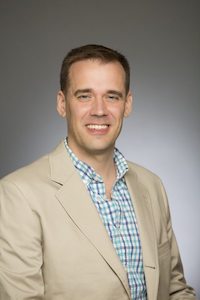Abstract:
Metals such as the rare earths, palladium, tellurium, lithium, cobalt, are now pervasive in technology and used regularly in our daily lives. But where do they come from, and how do we get them into pure forms for use in technology? In many cases, mining and purification practices for ‘critical’ metals are extremely harmful for people and the environment. It is therefore attractive to try to improve chemistry associated with mining and to reclaim such metals from spent technologies. In many cases, chemistry and engineering to recycle specific critical metals is lacking, compared to the cost of obtaining them from primary sources. In this talk, efforts to develop new separations chemistry for purifying critical metals will be presented. Among these, efficient, inter-f-element separations, such as within the rare earths, remain a perennial challenge. We have been interested in triggering element-specific changes, for example through highly specific structural differences, to achieve efficient separations through new thermodynamic modes. And in a complementary approach, to express differences in metal complexes through variable rates of some chemical change – a separations chemistry through kinetics. Both methods allow direct connection of coordination chemistry to macroscopic properties for separations. These connections have enabled new modes in solid-liquid extraction to complement solvent extraction for specialized applications. For this talk, our latest results on chelating and redox active ligand frameworks and their applications in thermodynamic and kinetic separations of critical metals will be presented. A common theme in the chemistry is the use of redox-based chemistry to develop new separations. Knowledge in ligand-based redox chemistry of rare earths has also been applied in a new direction for materials chemistry. In this latter case, molecules with strong f-electron correlations are being studied. With understanding of local f-electron interactions, new molecular materials are being developed to express emergent quantum phenomena.
Speaker:
Institution:
Location:

